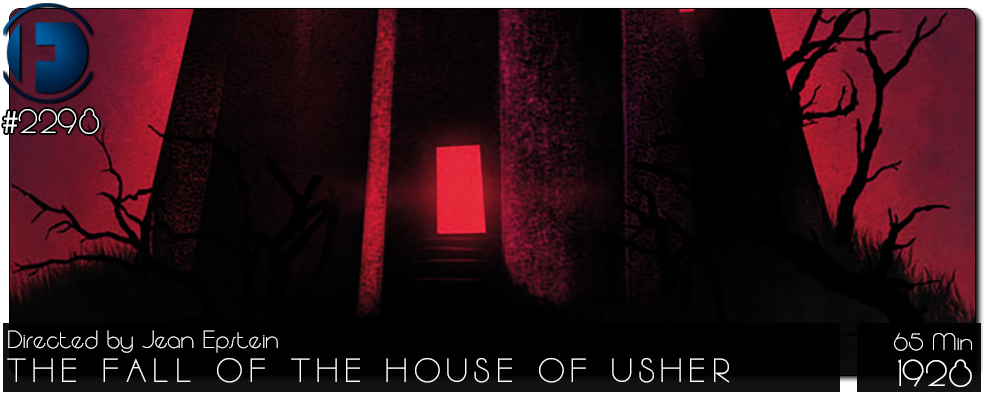Movie Review – Fall Of The House Of Usher, The (1928)
Principal Cast : Jean Debucourt, Marguerite Gance, Charles Lamy, Fournez-Goffard, Luc Dartagnan, Abel Gance.
Synopsis: Allan visits the sinister Usher family mansion, where his friend Roderick is painting a portrait of his sickly wife Madeline. The portrait seems to be draining the life out of Madeline, slowly leading to her death.
********
For what is effectively a short film, Jean Epstein’s 1928 silent film version of Edgar Allan Poe’s classic story is overflowing with imagery that will thrill and shock even the hardest of silent film fans. This French film was one of two to bear the Usher title released in that year, with another silent film directed by James Watson released out of America in what feels like a very Poe-heightened year for entertainment. Epstein’s film is layered with wonderful visual effects, some stunning photography – keep in mind, this film is nearly a century old and expectations should be kept in check – and a delightfully Gothic tone that really does work wonders. Although the score available on the French-language version I viewed on Tubi is a little too overbearing for what transpires on screen, fans of the silent era would do themselves all the favours in the world hunting down the English-subtitled versions lurking on YouTube and giving this a shot.
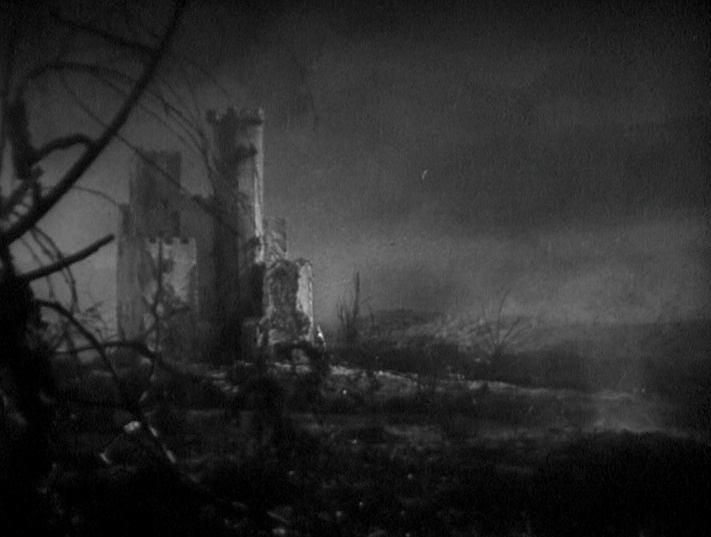
I admit to not being particularly knowledgeable about Edgar Allan Poe as a writer, with many of his famous works, including “The Pit And The Pendulum” and “The Tell-Tale Heart” remaining briefly encountered if not always embraced for yours truly; that said, his established legacy within American literature cannot be overstated and the writer remains a towering figure over much of the horror genre’s roots. The Fall Of The House Of Usher is a short story by Poe first published in 1839m and is loosely based (apparently) on events that transpired in the American Northeast in this period. Poe summons all his supernatural spookiness for this fable about a brother and sister duo holed up on a crumbling mansion where a creepy painting is the only thing linking brother Roderick to sister Madeline, although in Poe’s story Madeline is near-ephemeral in nature and thought to represent the “other side”, a spectral apparition moreso than a living one. The story touches on themes of grief and loneliness as well as its more ghoulish manifestations, and Epstein’s film generally embellishes this dark, foreboding tale with panache.
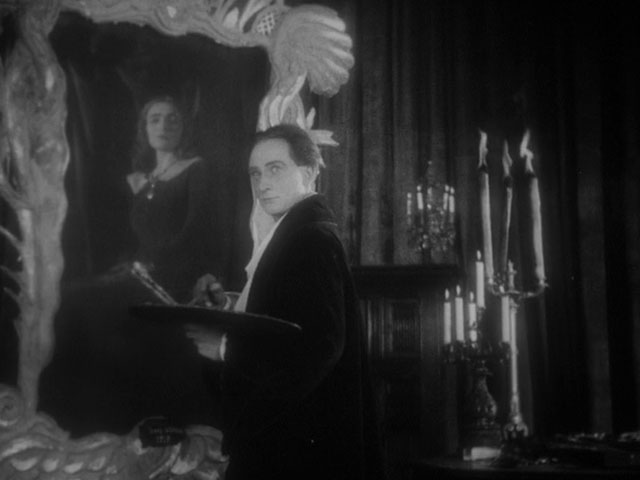
Jean Debucourt portrays Roderick, with Marguerite Gance (wife of legendary Napoleon filmmaker Abel Gance, who appears here in a minor cameo in a short bar sequence to open the movie) portraying Madeline, although in this version the characters are not siblings but rather husband and wife, resulting in a substantially more effective (in my opinion) connection to the events therein depicted. The unnamed narrator of Poe’s story is given the appellation Allan, aka “the guest”, and is portrayed by a frazzled Charles Lamy in a workmanlike role. Allan arrives upon summons to the Usher house, a looming, dank mansion on what appear to be moors, beset by fog and altogether macabre in tone. There he discovers Roderick has become obsessed with a painting of his wife, Madeline, who herself is predisposed to be utterly gaunt with illness; upon Madeline’s death, Roderick lapses into a state, and orders his sister buried in the family crypt, whereupon it is revealed that she has, in fact, been buried alive.
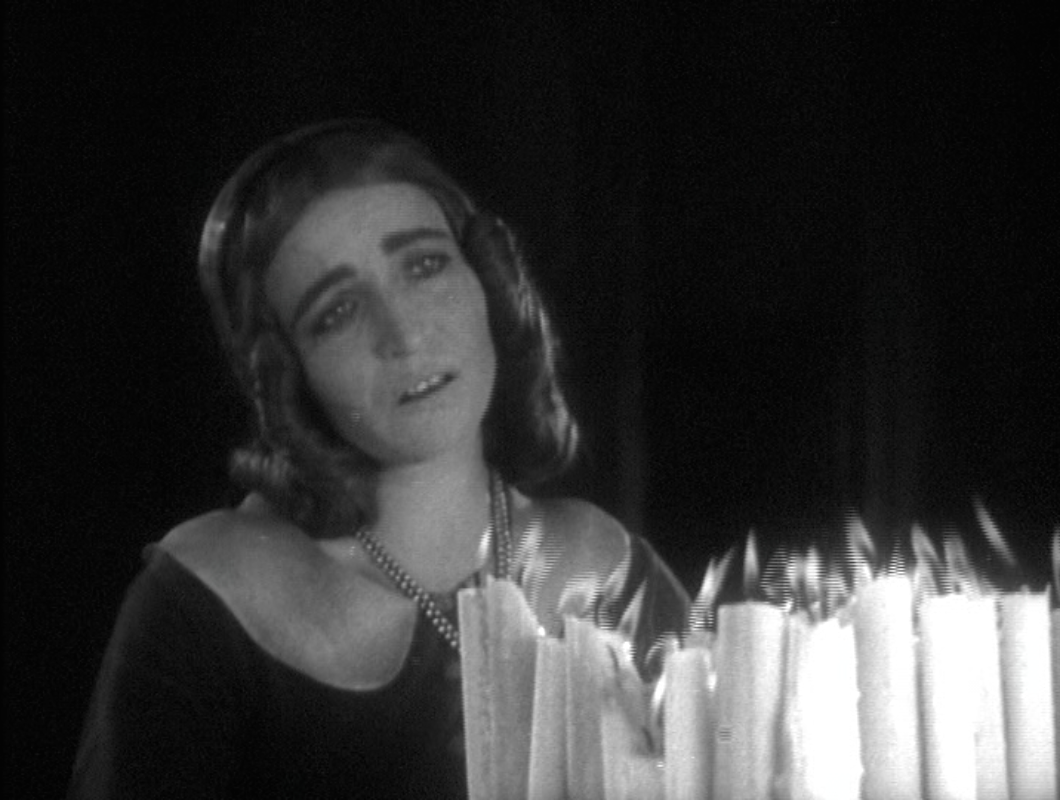
Themes of mortality and death always seem to be lurking in the shadows of Poe’s works, and these dark tones take hold fully in Jean Epstein’s terrific adaption of the story. The Fall Of The House Of Usher is less about a house falling and more about one man’s obsession but the gist is one of despair and grief, leastways as far as I could make out. The print on Tubi I viewed wasn’t the most detailed, and I suspect a lot of detail in every frame has been lost to time with low-resolution transfers, yet regardless of this, the film is an absolute banger. Silent films have long been my go-to for filmmaker creativity, with directors of the day forced to tell amazing stories with comparatively limited (and limiting) technology at their disposal, and much like other major silent films of the period I’m astonished at what Epstein manages to deliver. From the looming spectre of the Usher mansion to the fogbound landscapes surrounding it, the foreboding feeling of approaching the setting is unsettling to say the least, let alone the myopic blanket of doom smothering the characters. The camerawork by cinematographers Georges and Jean Lucas, together with the lighting, use of in-camera practical effects, and production design, is first rate, enveloping the viewer in a sense of danger even before anything dangerous actually happens. There’s a tension within The Fall of The House of Usher’s silence, accompanied only the overpowering score by Alec Wilder, which permeates every frame.
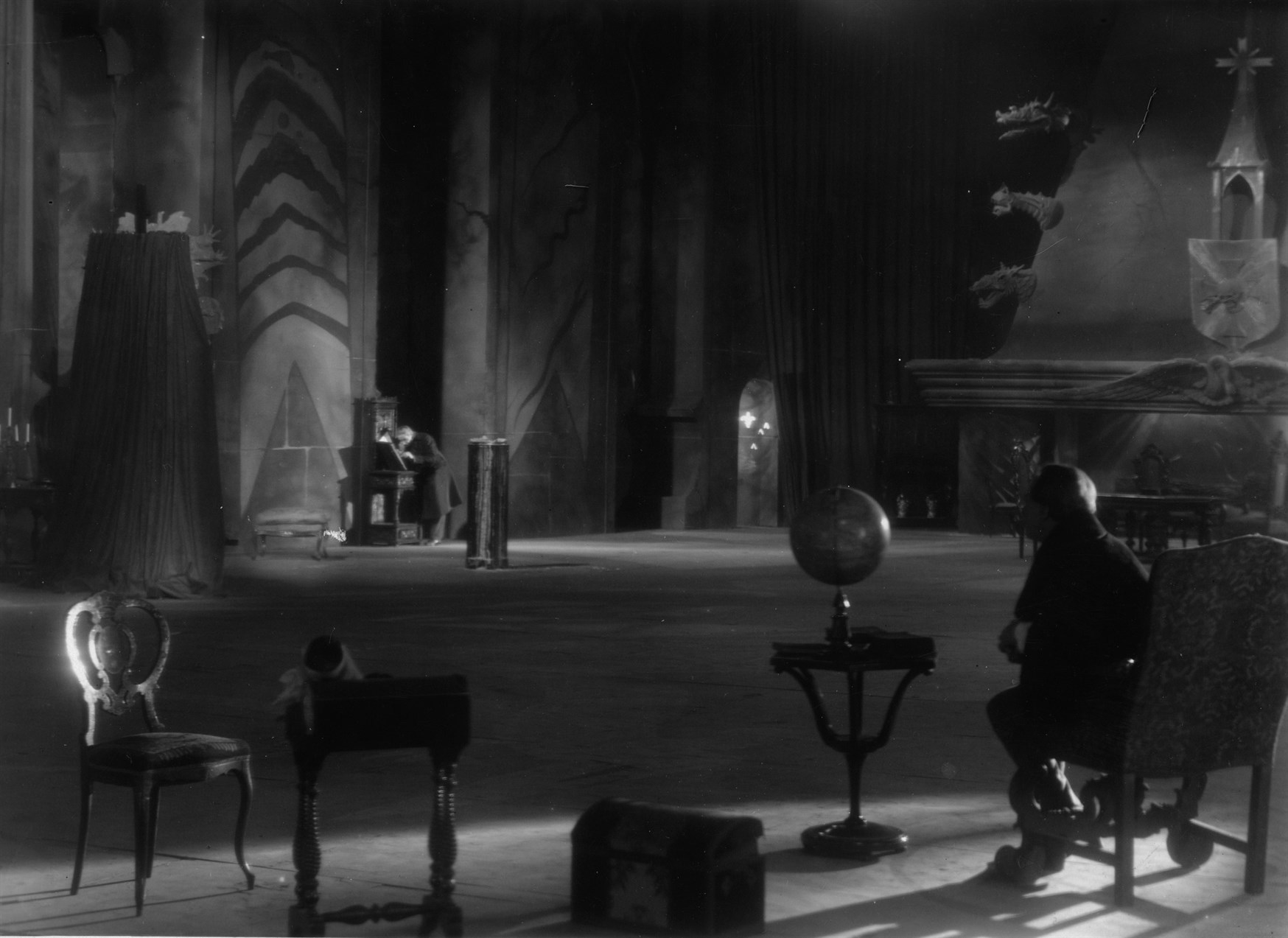
Among the cool effects deployed by Epstein in bringing Poe’s vision to life is reverse photography (playing film in reverse so things like candles flickering and curtains blowing have an otherworldly sinister-ness, for example), plenty of double exposures and plenty of cool – if dated – model shots and miniature work. Obviously the live-action was shot practically on a soundstage, with many of the exteriors of Usher Mansion being models layered with smoke, and this antiquated visual style works for the mood of the piece, prickling the skin in that cheaper, hiding-behind-the-sofa way Doctor Who did back in the Sixties. Debucourt, Gance and Lamy all do solid work in terms of performance but I would argue that “overblown” is a descriptor that works against them when it comes to realism. This is a silent film from France in the 1920’s, so gritty emotional context and subtlety are definitely not the order of the day; reactions and overacting serve to heighten the mood here, for sure, but for every scowl, look of horror or deceptive glance utilised by the actors on screen my patience for theatricality was starting to wear thin.
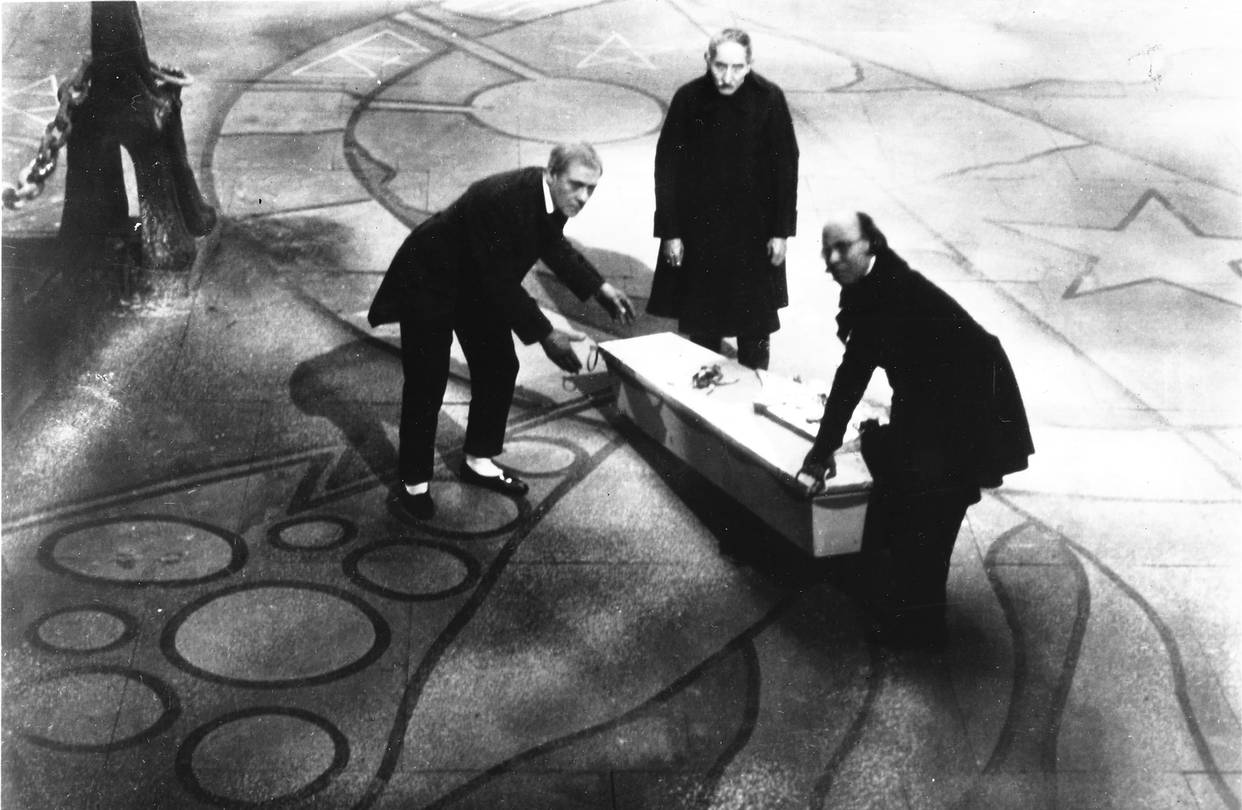
Jean Epstein’s film also doesn’t stay too long, clocking in at a smidge over an hour including credits, so it’s not really a big ask to sit down and enjoy it. This Usher may not be your cup of tea, especially if you’re not a fan of Gothic horror and iconography, but I would suggest spending an hour here won’t be time wasted in any case. Solid production value and great filmmaking style more than make up for any of the film’s shortcomings. Fans of silent films should definitely check it out, and anyone who’s at all keen on the works of Poe will likely have already done so. For me, it’s a visual treat (moreso than its character work, which is poorly dated by this point, sadly) and on that note alone I can thoroughly recommend it.

